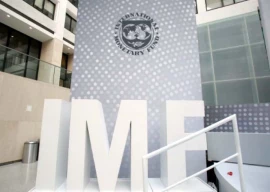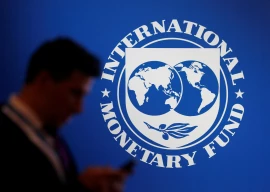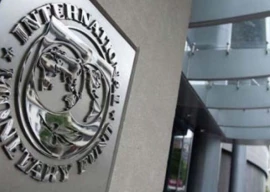
While steps meant to stabilise the economy are paying off, challenges do persist. This is what the IMF has assessed after its executive board had last week successfully concluded the first review of Pakistan’s economic reform programme, paving the way for disbursement of a $700 million tranche. This latest disbursement brings the cumulative total under the $3 billion Stand-By Arrangement to $1.9 billion. The successful IMF review and the subsequent disbursement have come as an acknowledgment of the policy measures adopted by the Government of Pakistan to add¬re¬ss economic vulnerabilities and promote sustainable growth.
The macroeconomic indicators showing stability, noted by the IMF in a statement, include a 2% GDP growth rate in FY24; improved revenue collection, strengthening the fiscal position in the first quarter of FY24 and securing a primary surplus of 0.4% of GDP; rise in the gross SBP reserves to $8.2 billion in December 2023; and an exchange rate contained at 22% since June 2023. Moreover, inflation that is currently hovering around 30% is expected to 18.5% by the end of FY24.
The challenges identified by the IMF’s statement include: high inflation impacting vulnerable groups which should be catered to through social safety programmes like BISP; undercapitalised financial institutions needing government support; the loss making state-owned enterprises in need of reform and restructuring as part of broader economic reforms, also featuring privatisation for some of the enterprises; climate events growing both in terms intensity and frequency; poor governance; and absence of a proper anti-corruption mechanism.
However, the most important of all is the need for external financing to avert the risk of a default on the country’s financial obligations that persistently hangs like a Sword of Damocles. While the country needs in excess of $75 billion to meets its foreign financial commitments, the Special Investment Facilitation Council (SIFC) comes up as the sole prospect. One can only hope that the friendly countries go ahead with their vows of economic engagement with Pakistan and make the desired investments to ease a dangerous balance of payments crisis.
While the Government of Pakistan seems to be moving smoothly on the path of economic reforms, there is need for “continued strong ownership to maintain momentum in stabilising Pakistan’s economy”, as emphasised by the IMF’s Deputy Managing Director, Antoinette Sayeh.
Published in The Express Tribune, January 15th, 2024.
Like Opinion & Editorial on Facebook, follow @ETOpEd on Twitter to receive all updates on all our daily pieces.
















COMMENTS
Comments are moderated and generally will be posted if they are on-topic and not abusive.
For more information, please see our Comments FAQ